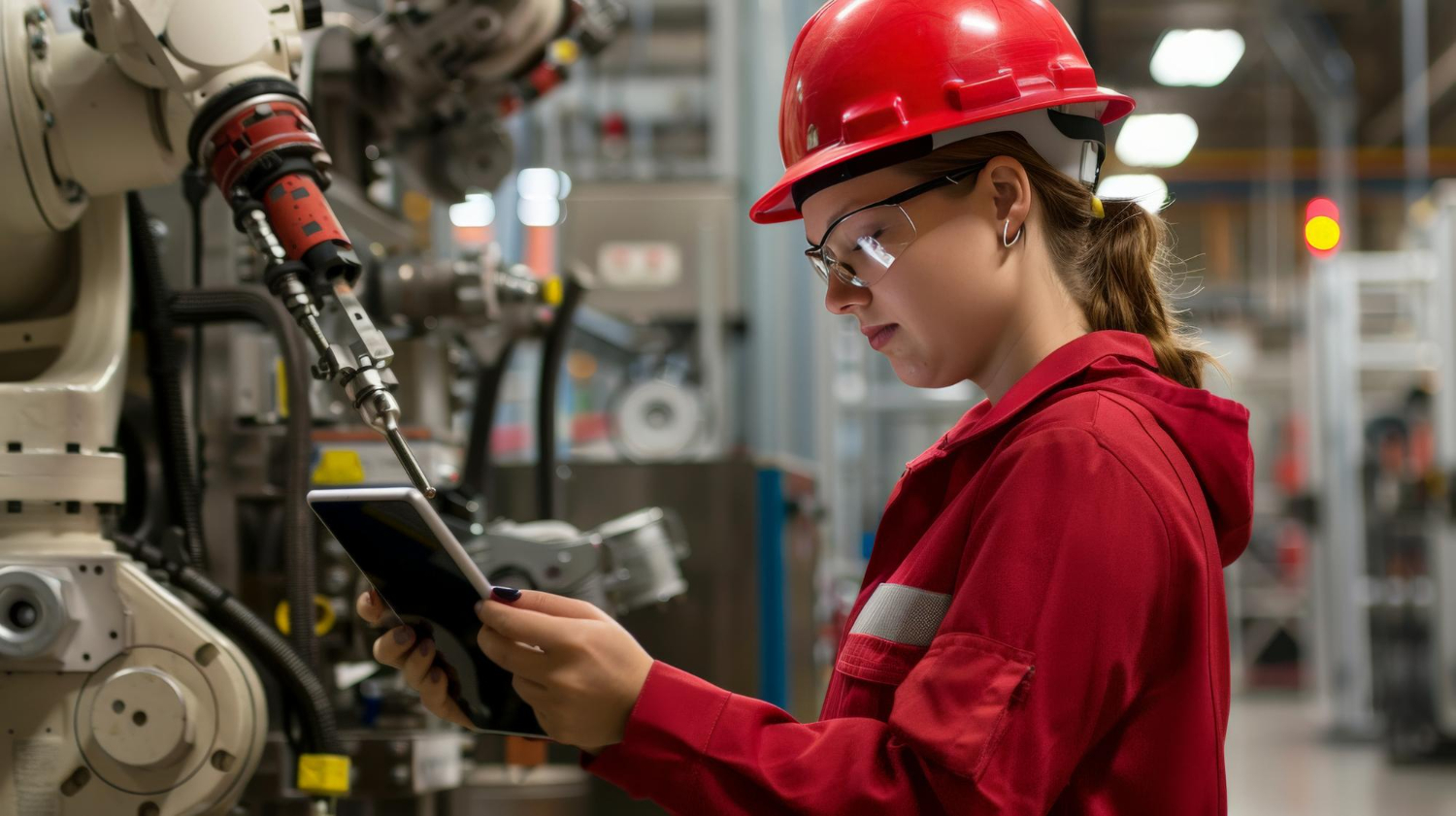
Factory floor inference: how AI transforms manufacturing in real time
The ability to process and analyze data in real time on the shop floor has evolved from an advantage to a necessity in the Industry 4.0 era. Factory floor inference is one of the most innovative applications of Artificial Intelligence (AI), enabling companies not only to monitor and control processes, but also to make intelligent, automated decisions that instantly optimize production. What is factory inference? Factory inference refers to the ability to apply AI models trained with data from the production environment, where data is generated in the middle of the different production processes which are necessary in the forming of different products. Unlike inference in the cloud, which requires data to be sent to a remote server for processing, factory inference occurs locally: it allows running AI models previously trained on the same local or Edge Computing devices or servers installed in the plant, without the need to send the data to the Cloud or to a remote data center. This reduces latency and enables immediate response to changing conditions in the plant. It also facilitates the application of AI in environments with limited or intermittent connectivity or stringent security or response time requirements, improving the privacy and efficiency of industrial processes. Factory inference allows AI models to be adapted to the specific conditions of each plant, which improves their accuracy and robustness. What are the benefits of this type of technology? Latency reduction One of the main benefits of factory inference is the reduction of latency. Since data is processed locally, decisions can be made in milliseconds, which is crucial for time-critical applications such as in-line quality control or process automation. Improved quality control Factory inference enables real-time quality inspection, using AI models that can detect defects or deviations in the manufacturing process as they occur. This significantly reduces waste and allows problems to be corrected before they become costly production errors. Performance optimization AI models can analyze data from multiple sources in the plant (sensors, machines, production lines) to optimize performance. For example, automatically adjusting machine operating conditions to maximize energy efficiency or minimize wear and tear. Security Factory inference also enhances security and privacy by keeping data locally that may contain sensitive or confidential information. Sensor data can, for example, reveal details about the design or operation of machines of interest to competitors or attackers. It also helps protect the data of customers or third parties involved in production processes. Predictive maintenance Factory inference is also key to predictive maintenance, as it makes it possible to monitor the condition of machines in real time and predict when a failure is likely to occur. This allows companies to perform maintenance more efficiently, avoiding unplanned downtime and extending equipment life. Connectivity & IoT IA & Data The digitalization of the industry: a practical guide October 4, 2023 Industry use cases Automotive In the automotive industry, factory inference is used for real-time quality control during the manufacturing of critical parts. Computer vision with AI can inspect parts in milliseconds, detecting defects that might not be visible to the human eye. Food In food and beverage production, factory inference allows production lines to be automatically adjusted based on data collected from sensors, ensuring consistency in product quality and compliance with food safety standards and reducing food waste in industry. Electronics In electronics manufacturing, factory inference helps identify and correct defects in real time, minimizing waste and ensuring that only products that meet quality standards reach the market. Conclusion Factory floor inference is a technology that enables companies in the industry to leapfrog into advanced automation and real-time decision making. Companies can improve quality, optimize performance, and reduce costs by integrating AI directly into the production environment while maintaining an agile operation that is reactive to customer demands or changing market conditions. It is therefore a key technology for driving industry competitiveness and sustainability. Telefónica Tech Connectivity & IoT “Each production company must digitalize itself according to its circumstances, objectives, and needs.” Darío Cesena, Geprom September 17, 2024 Image: bugphai /Freepik.
September 25, 2024
 Hybrid Cloud
Hybrid Cloud Cyber Security & NaaS
Cyber Security & NaaS AI & Data
AI & Data IoT & Connectivity
IoT & Connectivity Business Applications
Business Applications Intelligent Workplace
Intelligent Workplace Consulting & Professional Services
Consulting & Professional Services Small Medium Enterprise
Small Medium Enterprise Health and Social Care
Health and Social Care Industry
Industry Retail
Retail Tourism and Leisure
Tourism and Leisure Transport & Logistics
Transport & Logistics Energy & Utilities
Energy & Utilities Banking and Finance
Banking and Finance Smart Cities
Smart Cities Public Sector
Public Sector
